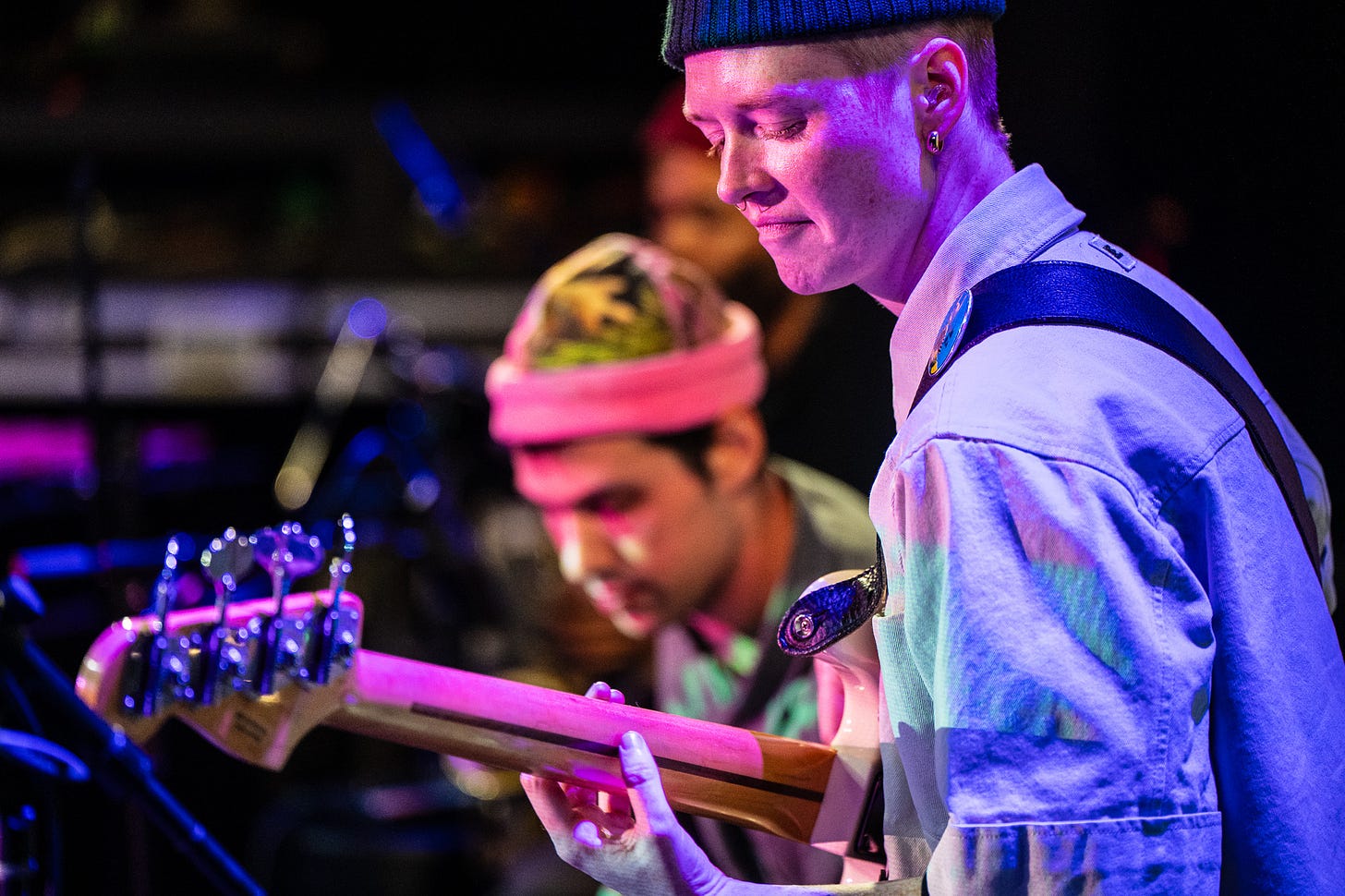
Anna Butterss, the heart of the trance-collage improv collective SML, began their Winter Jazzfest show at the Music Hall of Williamsburg with a personal disclosure. “We’re all in a state of shock,” …
Keep reading with a 7-day free trial
Subscribe to The Gig to keep reading this post and get 7 days of free access to the full post archives.



